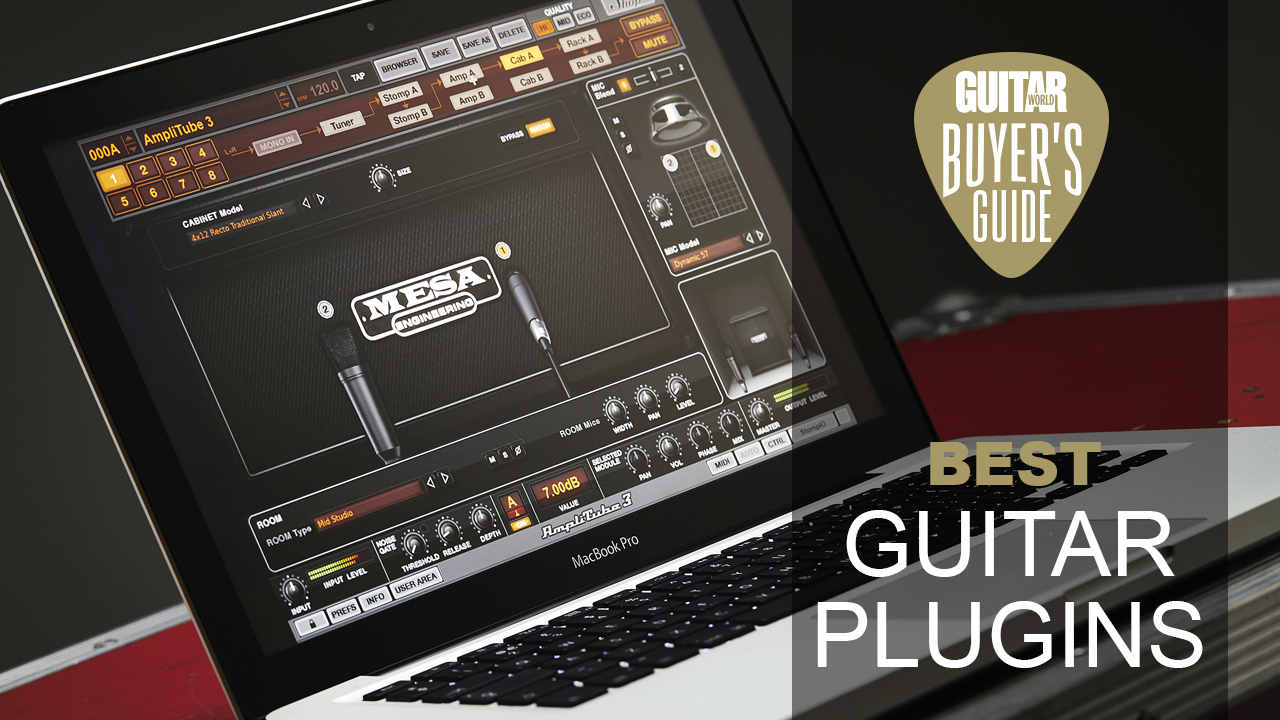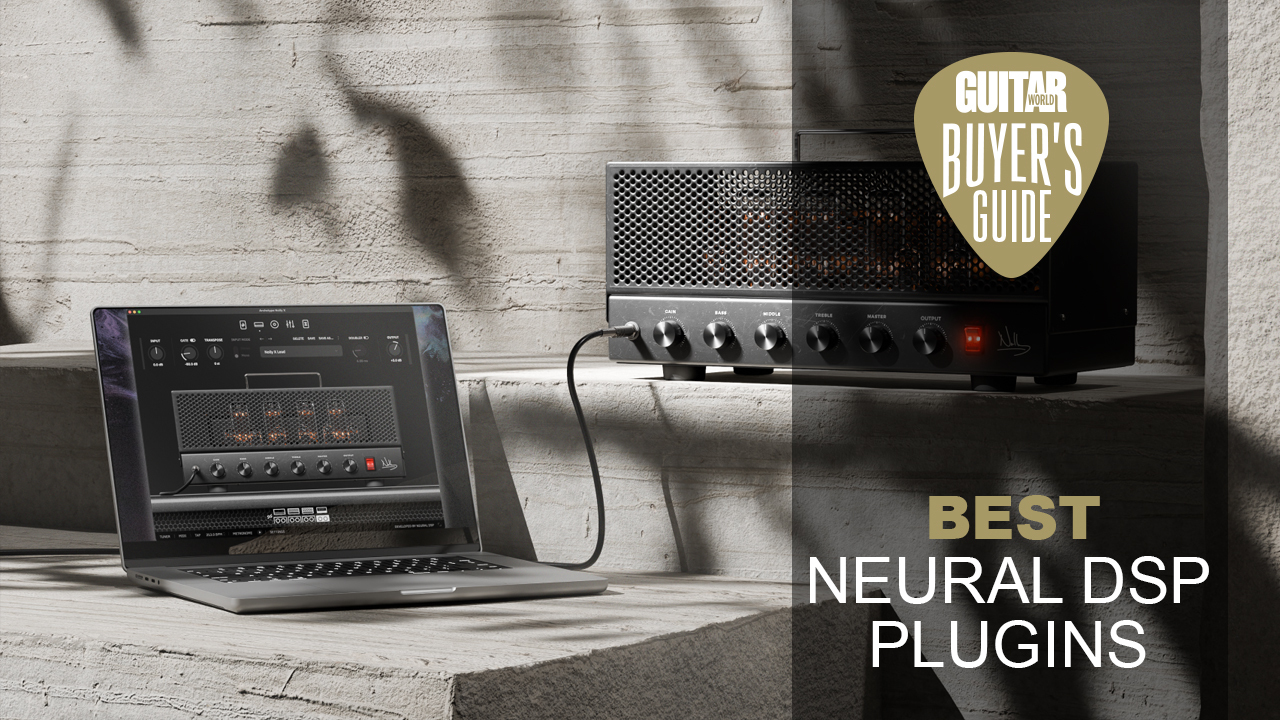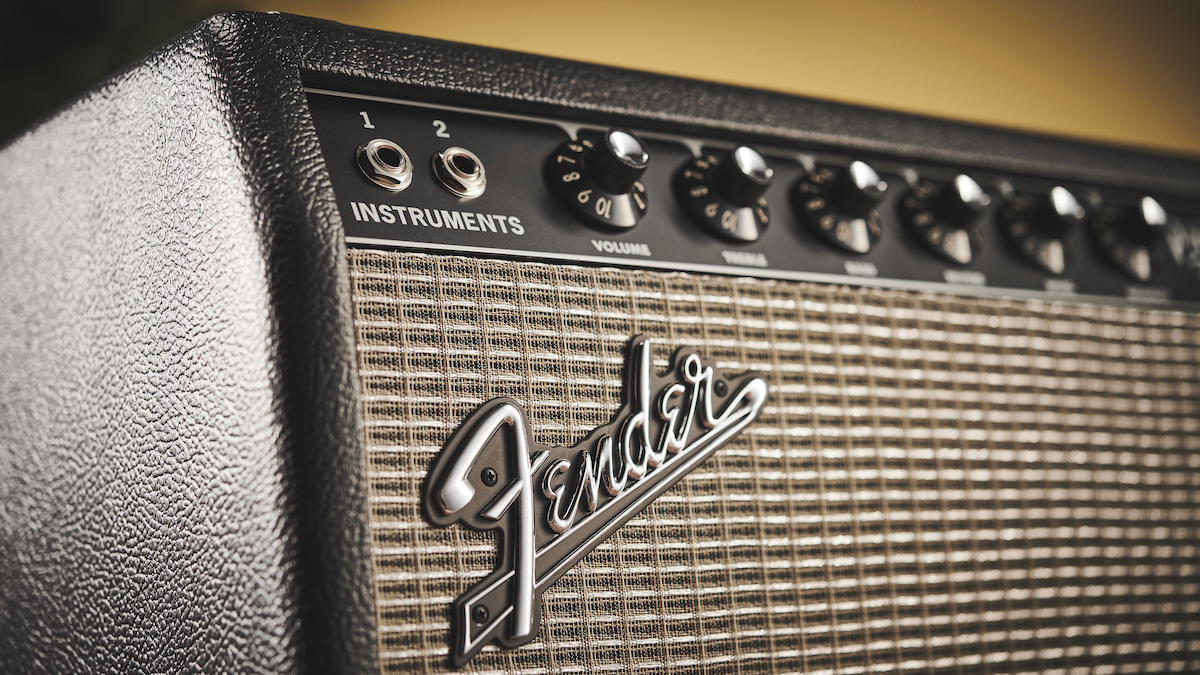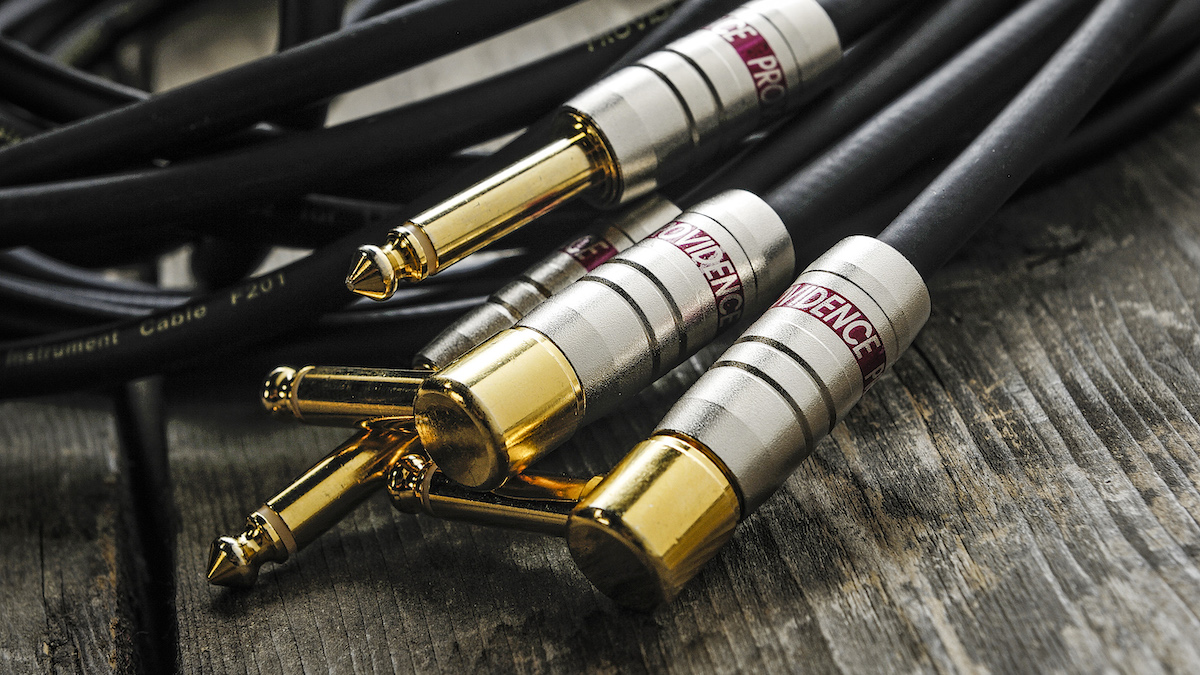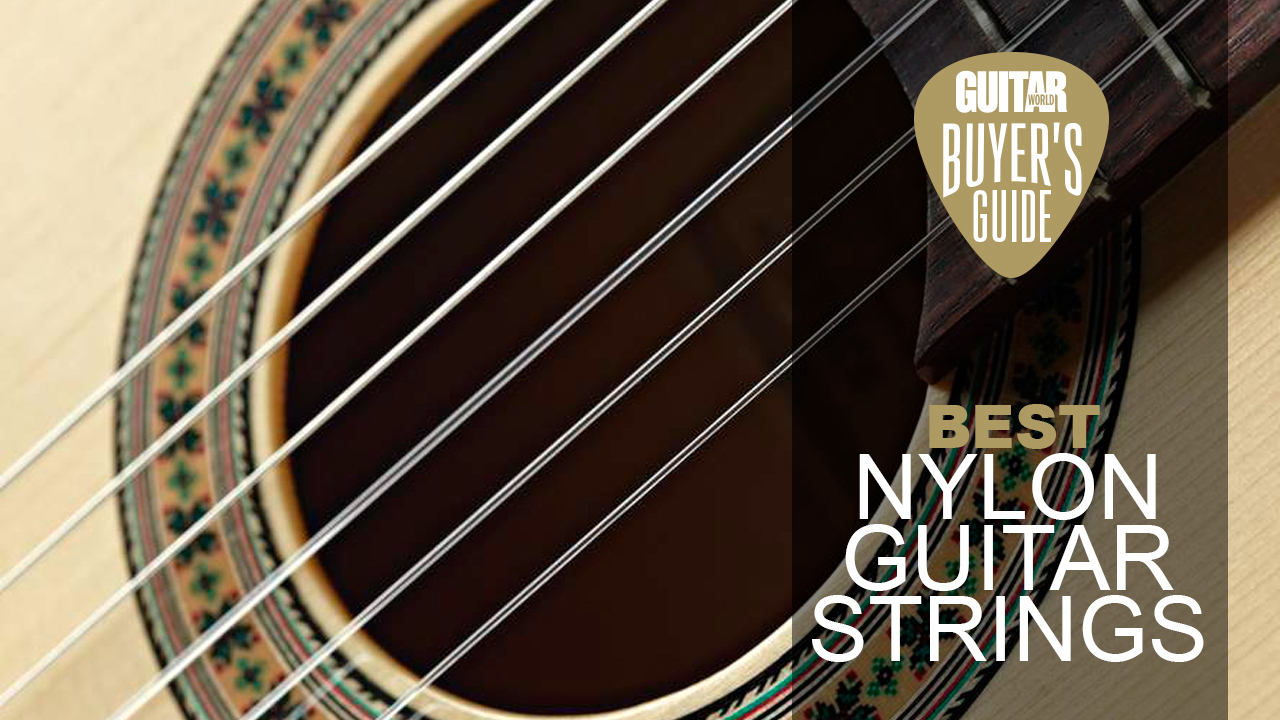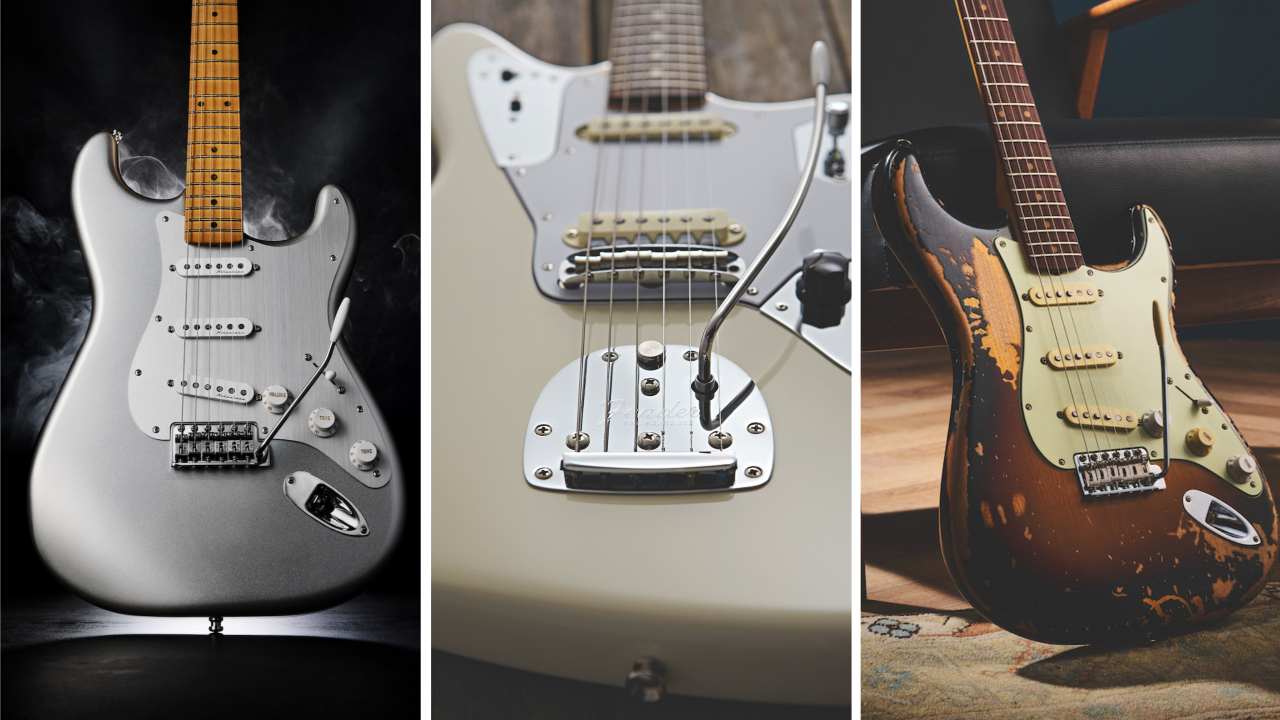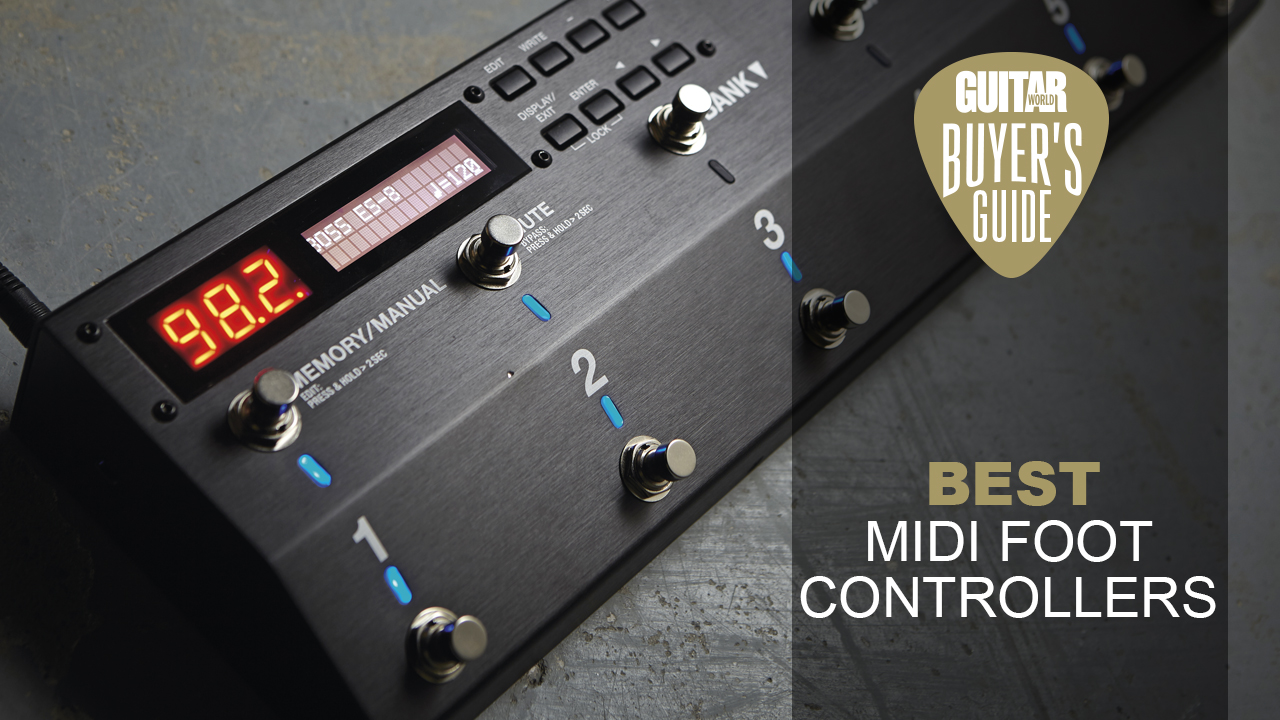Best guitar cases and gig bags 2025: from cost-effective protection, to indestructible travel companions
Our road-tested hard case and gig bag offerings for acoustic and electric guitar

For us guitarists, getting a new instrument is a feeling like no other. Perhaps you’ve saved for some time to afford your dream instrument, or you’ve received a cherished gift. One thing is sure: you’ll want to keep it safe, particularly if you’re likely to take it on the road. This is when you should be looking for the best guitar case or gig bag for your instrument.
No matter how carefully you handle your guitar, those cunning bedfellows destiny and gravity will catch you out eventually, resulting in a mishap that leaves your instrument bruised and your ego battered.
Many guitarists are guilty of choosing any old case for their instrument, rather than one that has been carefully selected and instils confidence that it will provide perfect protection. The best guitar cases are designed to cope just as well sitting in the corner of a home studio, with the occasional kick, or being thrown in the back of a van night after night.
In our selection we’ve looked for the best cases across every price point, catering for acoustics and electrics of all shapes and sizes.
And if you want to find out which kind of case is best for you, visit our FAQs section at the bottom of this guide.
Our top pick
While there are multiple great options for a variety of different budgets and use cases in this guide, if you're on the lookout for a wallet-friendly case that offers rock-solid protection, then the Fender F1225 Electric Guitar Gig Bag is the one we recommend right now.
It's a semi-rigid case, which means it offers the best of both worlds - light weight and comfortable to sling on your back, just like a soft case, but protective and rugged enough to ensure your pride and joy is covered in all but the most violent of transits, like a hard case.
Best Fender hard case
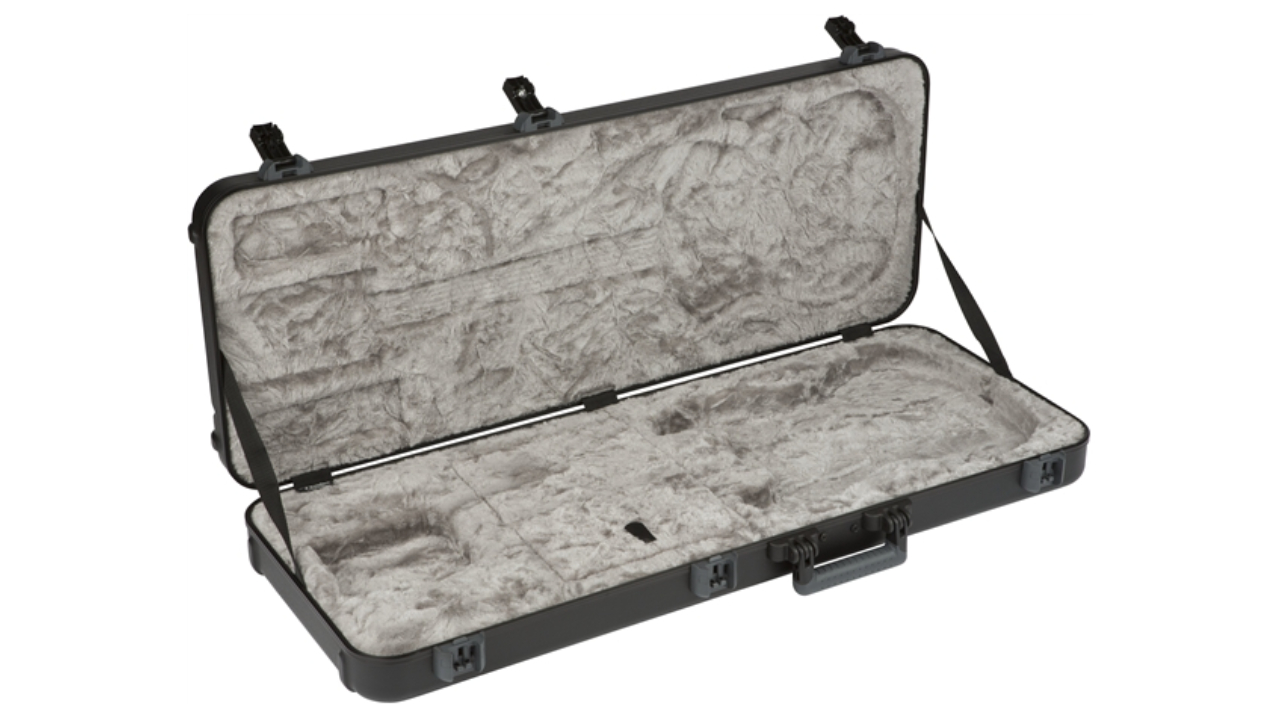
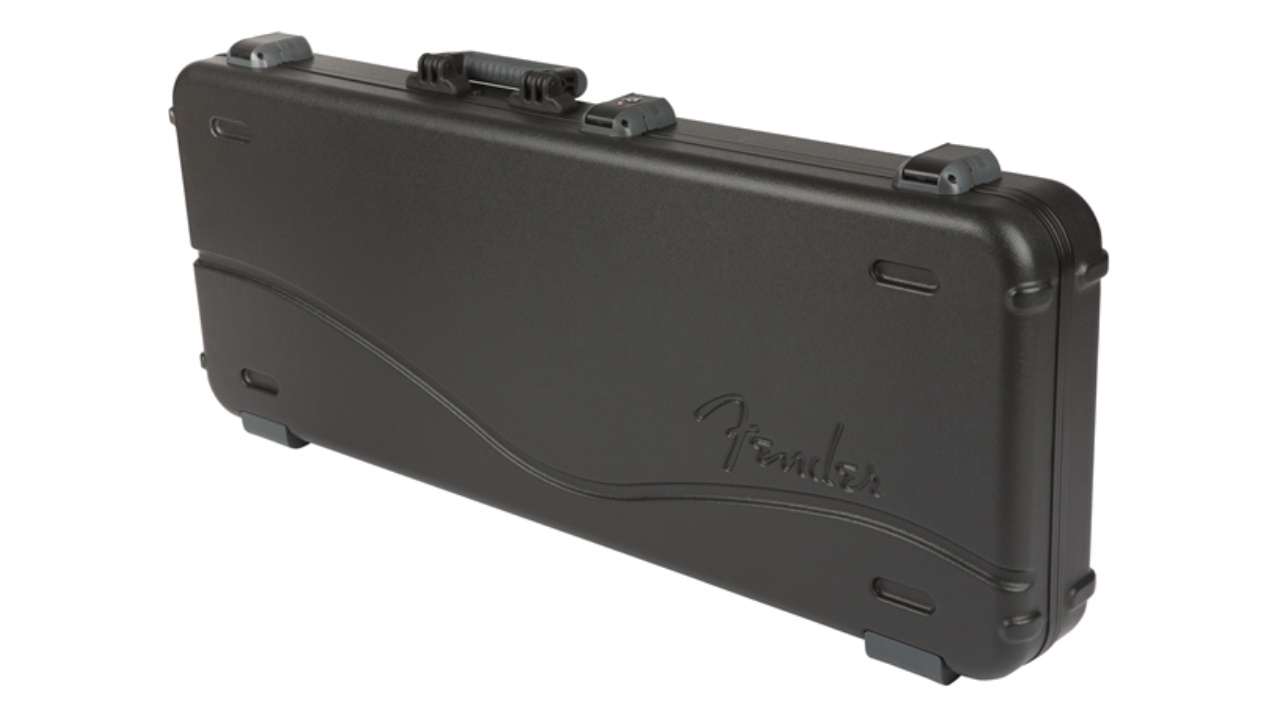
1. Fender Deluxe Molded Case
Our expert review:
Specifications
Reasons to buy
Reasons to avoid
Built from military-grade ABS plastic, this case feels reassuringly solid as soon as you pick it up. Flip the latches and you’ll discover acres of plush polyester fur in which to nestle your guitar. There’s a large storage compartment, with plenty of room in which to tuck strings, cables and even a strap, together with a custom-fit cut-out specific to your Fender model.
The handle is robust, comfortable and well-balanced, even for heavier bass guitars. Rubberized feet make it ultra-stable, while indents on the top make it possible to stack multiple cases securely. If your Fender didn’t come with a case, or you have the previous plastic case, then this is a fabulous buy.
Best Gretsch hard case
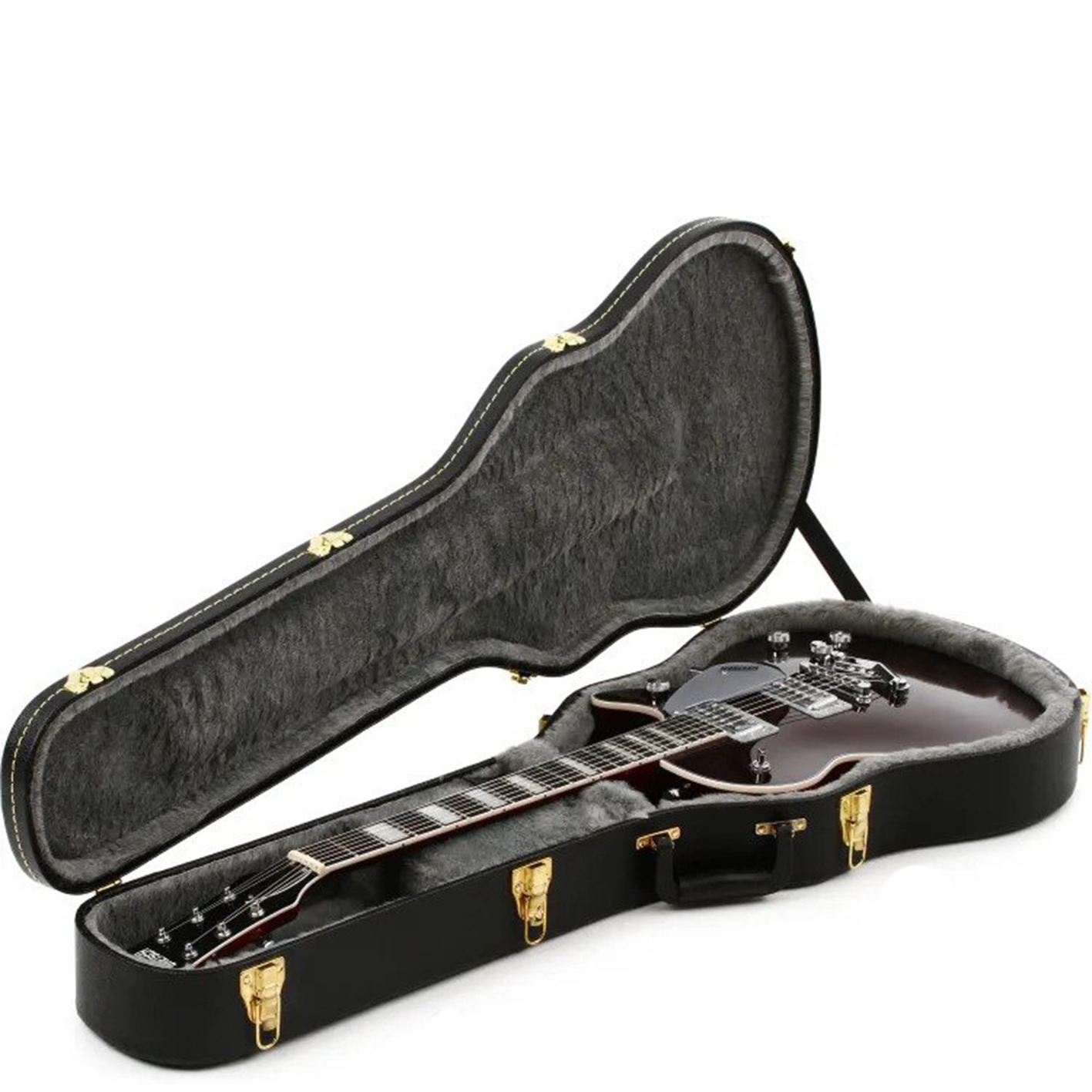
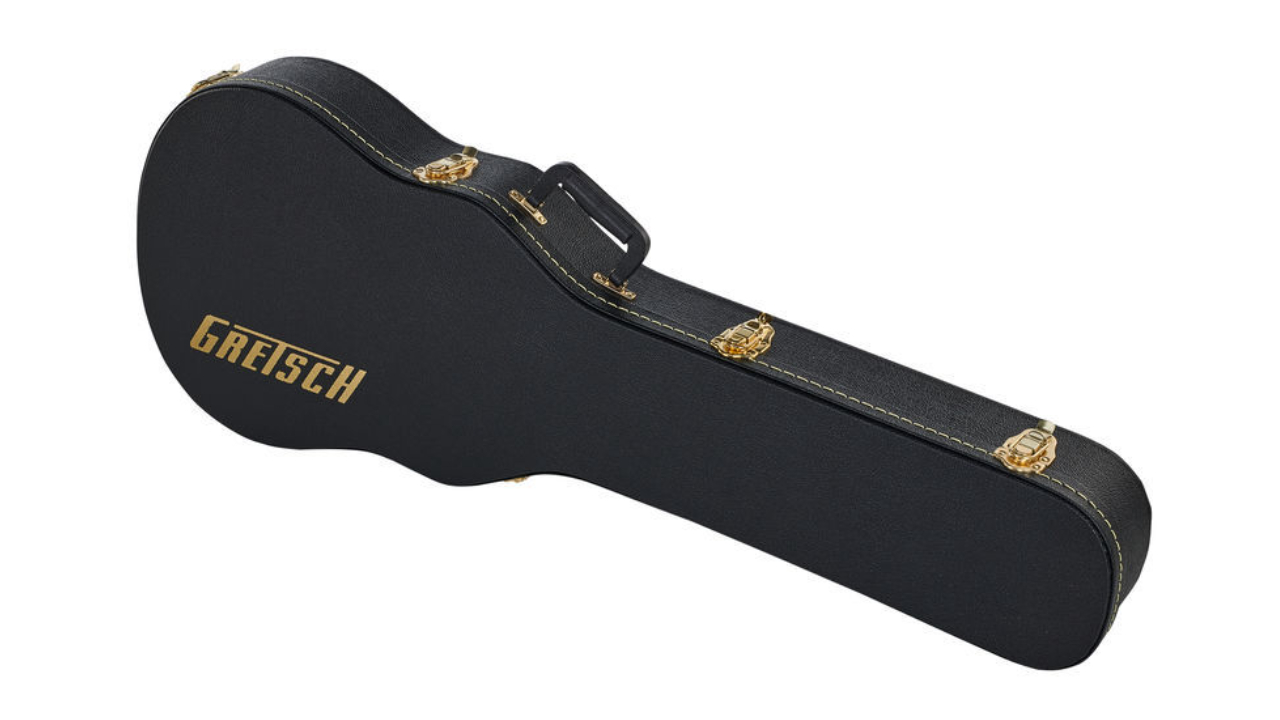
2. Gretsch G6238FT Case
Our expert review:
Specifications
Reasons to buy
Reasons to avoid
The Gretsch Electromatic series is universally praised for offering outstanding value for money. The build quality is spot-on, and these wonderful guitars have that signature Gretsch tone in spades. How does Gretsch do it for the money?
To keep retail prices low, the manufacturer doesn’t bundle said guitars with a case or gig bag. It has such a following, and the guitars are so unique, that this won’t concern most potential buyers, who’ll just budget for a case anyway.
First choice for solid bodies has to be the reasonably priced G6238FT. The spec is fairly modest – plywood construction with a smart, black Tolex wrap – but the plush grey interior will make a lovely home for your Gretsch.
Best acoustic gig bag
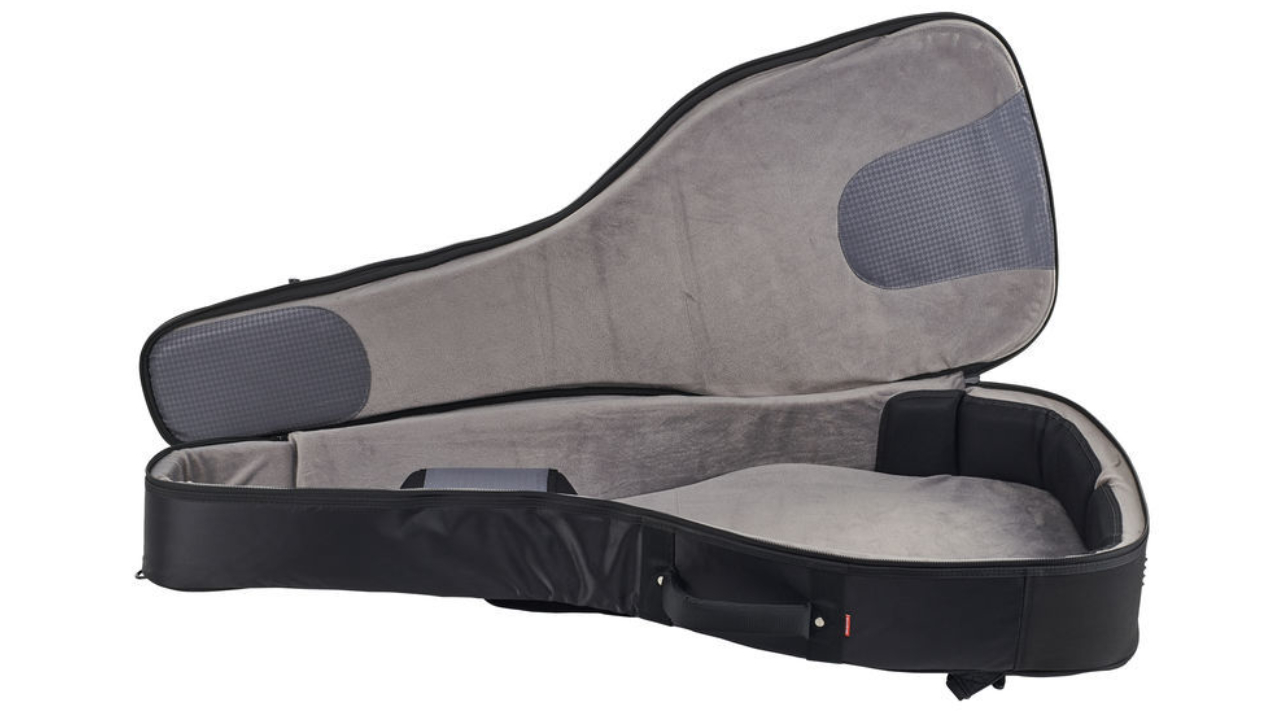
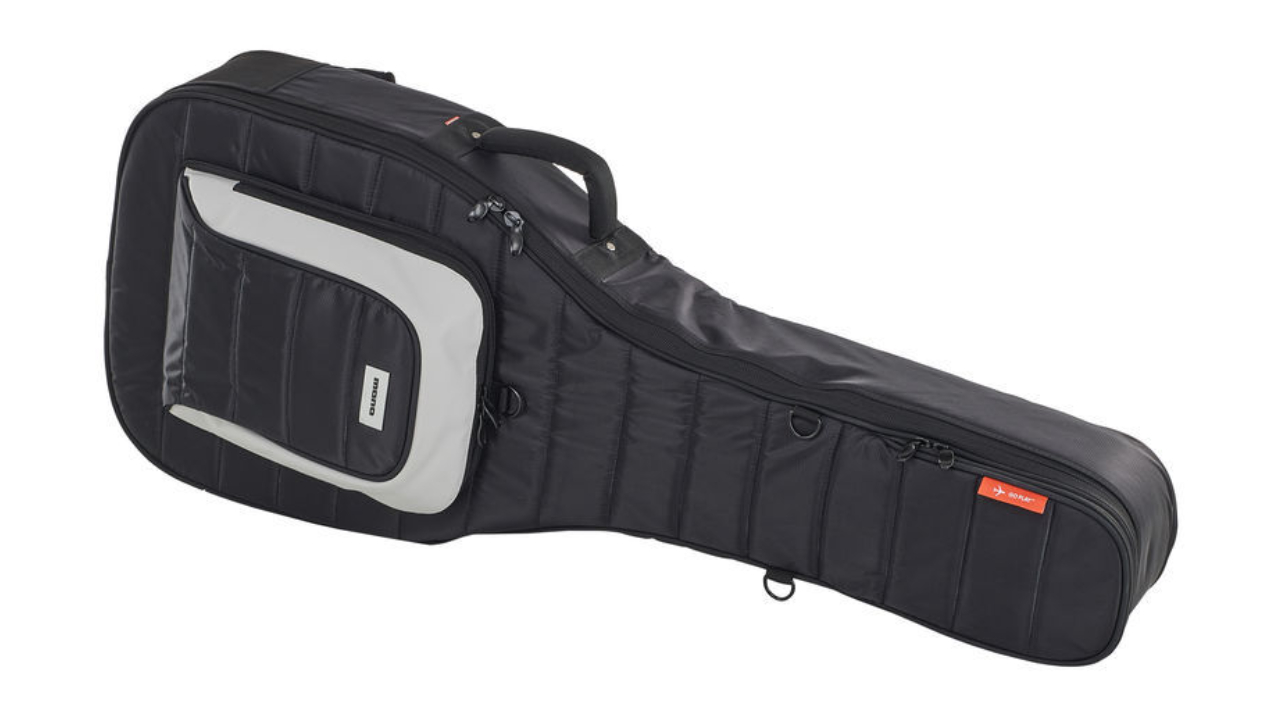
3. MONO Classic Acoustic/Dreadnought Guitar Case
Our expert review:
Specifications
Reasons to buy
Reasons to avoid
MONO has a reputation for building featherweight bags that rival hard cases in every respect. They boast ‘military-spec’ fabrics, and while we’re not exactly sure what that means, we do know that they’re built like tanks. High-grade webbing, bar-tack stitching, steel rivet reinforcements, a hard-wearing Hypalon sole, and a water- and abrasion-resistant ‘Sharkskin’ outer are tell-tale signs that this bag has been developed to survive some serious abuse.
Inside, ABS panels are there to absorb and deflect hard knocks, while high-density foam bumpers will divert vertical impacts out and around the lower bout of your guitar to protect the vulnerable strap pin area.
Best acoustic hard case
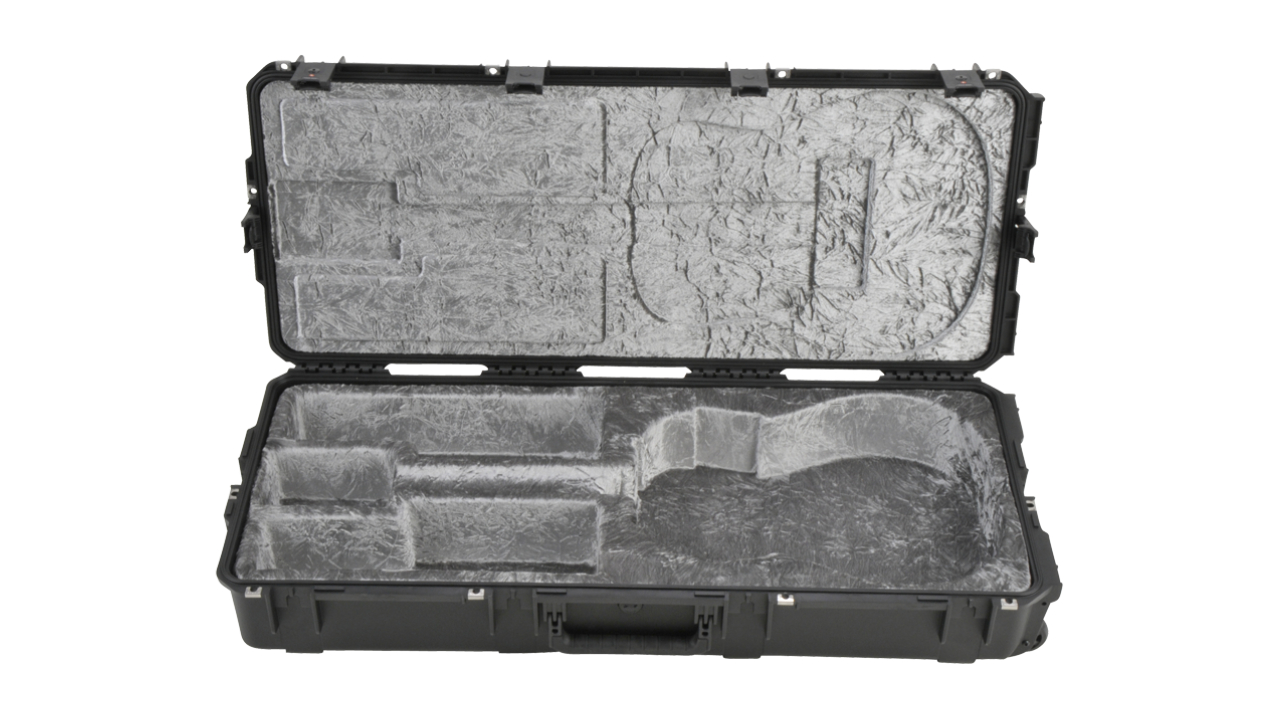
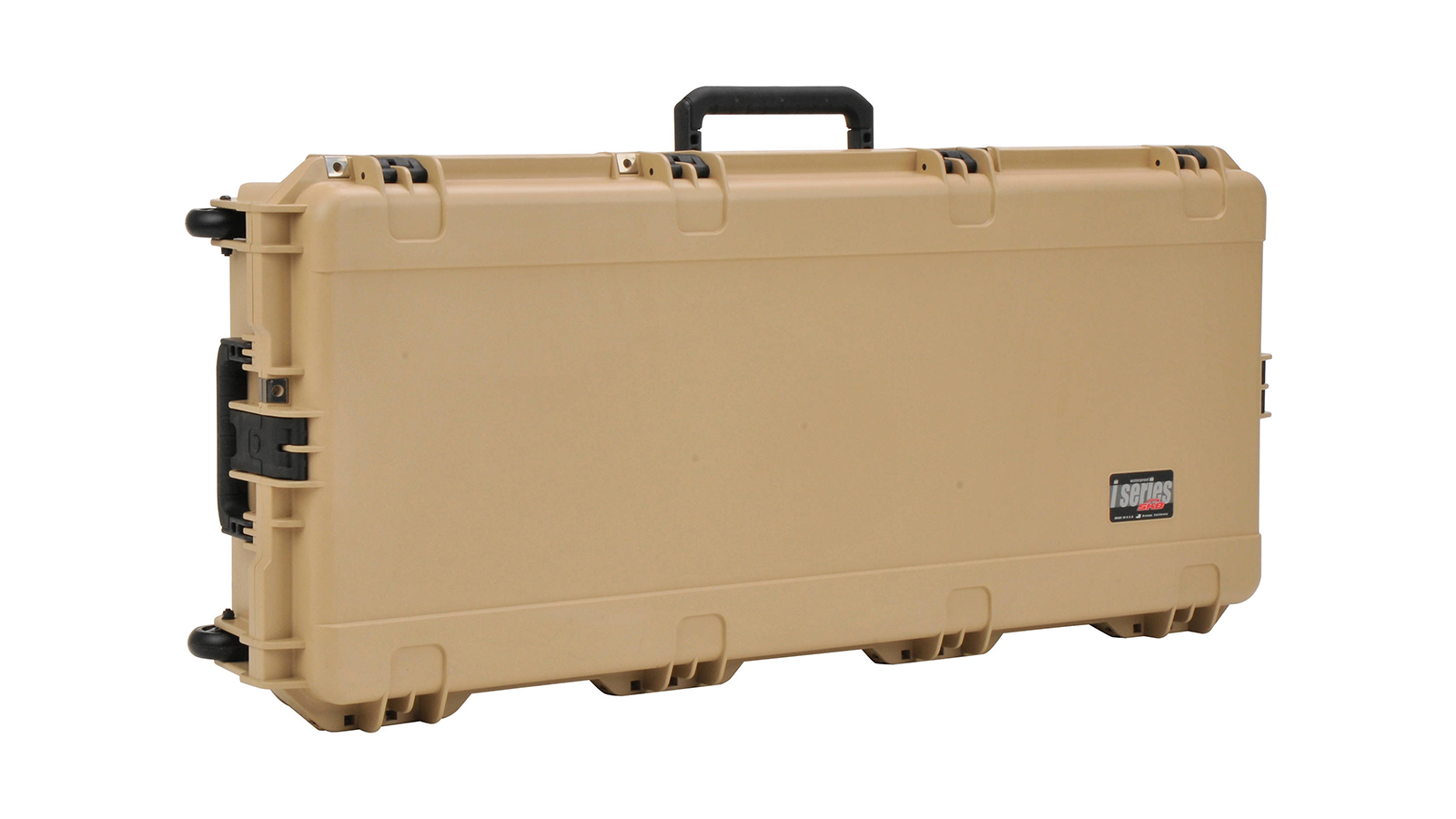
4. SKB iSeries Waterproof Acoustic Guitar Case
Our expert review:
Specifications
Reasons to buy
Reasons to avoid
If you’re looking for an almost nuke-proof solution to protect your acoustic guitar from armageddon-rated mishaps, then this is probably it. SKB iSeries cases (there are models for acoustics and electrics of all shapes and sizes) are made from seriously tough, corrosion-resistant materials, and feature extra-strong hinges plus a plethora of beefy latches.
The most significant selling point is that these cases are fully waterproof. A gasket will keep out everything from pure H2O to sticky soda, while an equalization valve will stop pressure from building up inside when temperatures rise. Acoustic guitars are very susceptible to water damage, so these iSeries cases provide much-needed reassurance for those living in, or traveling to, wetter climes.
Best semi-rigid
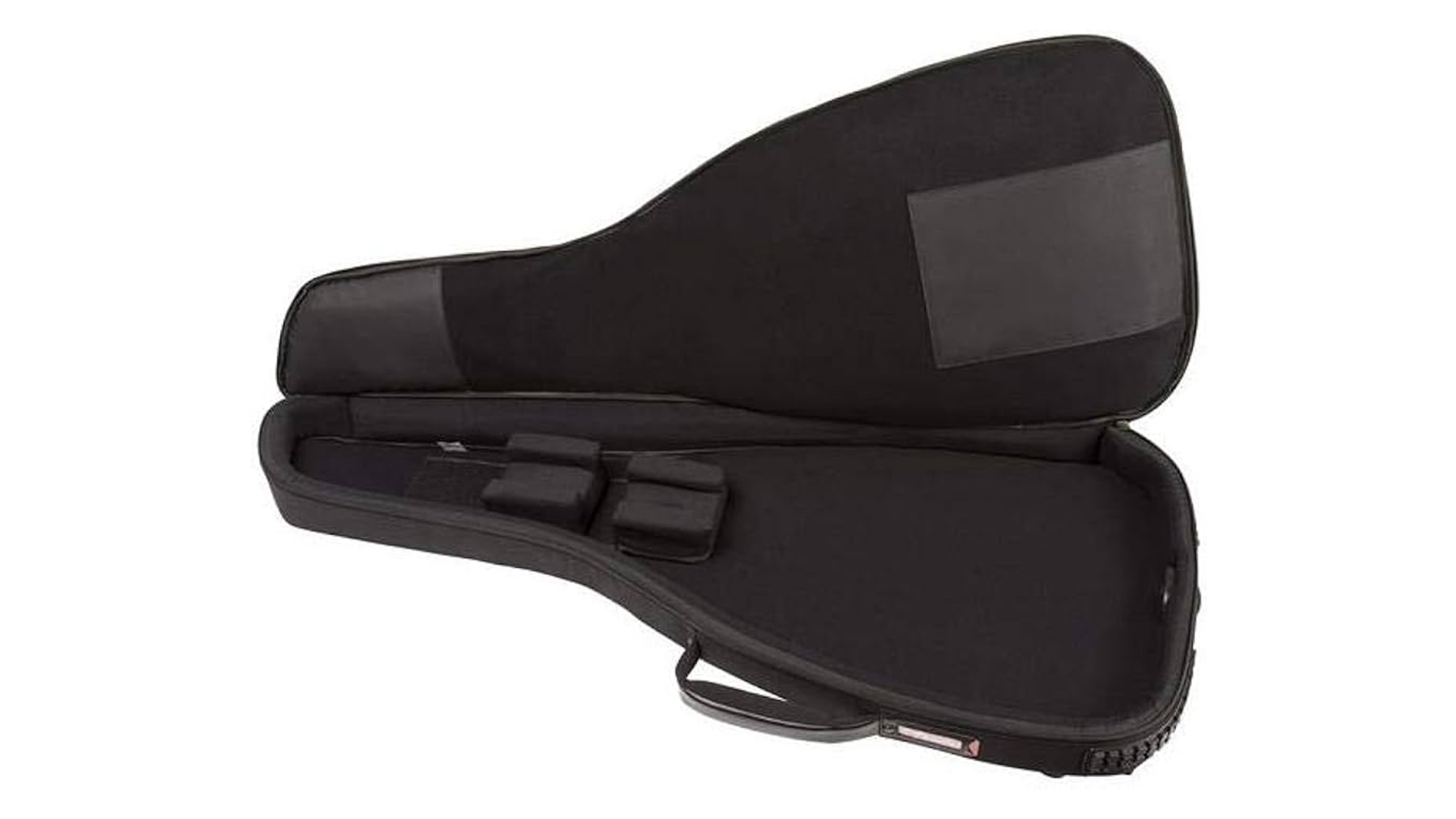
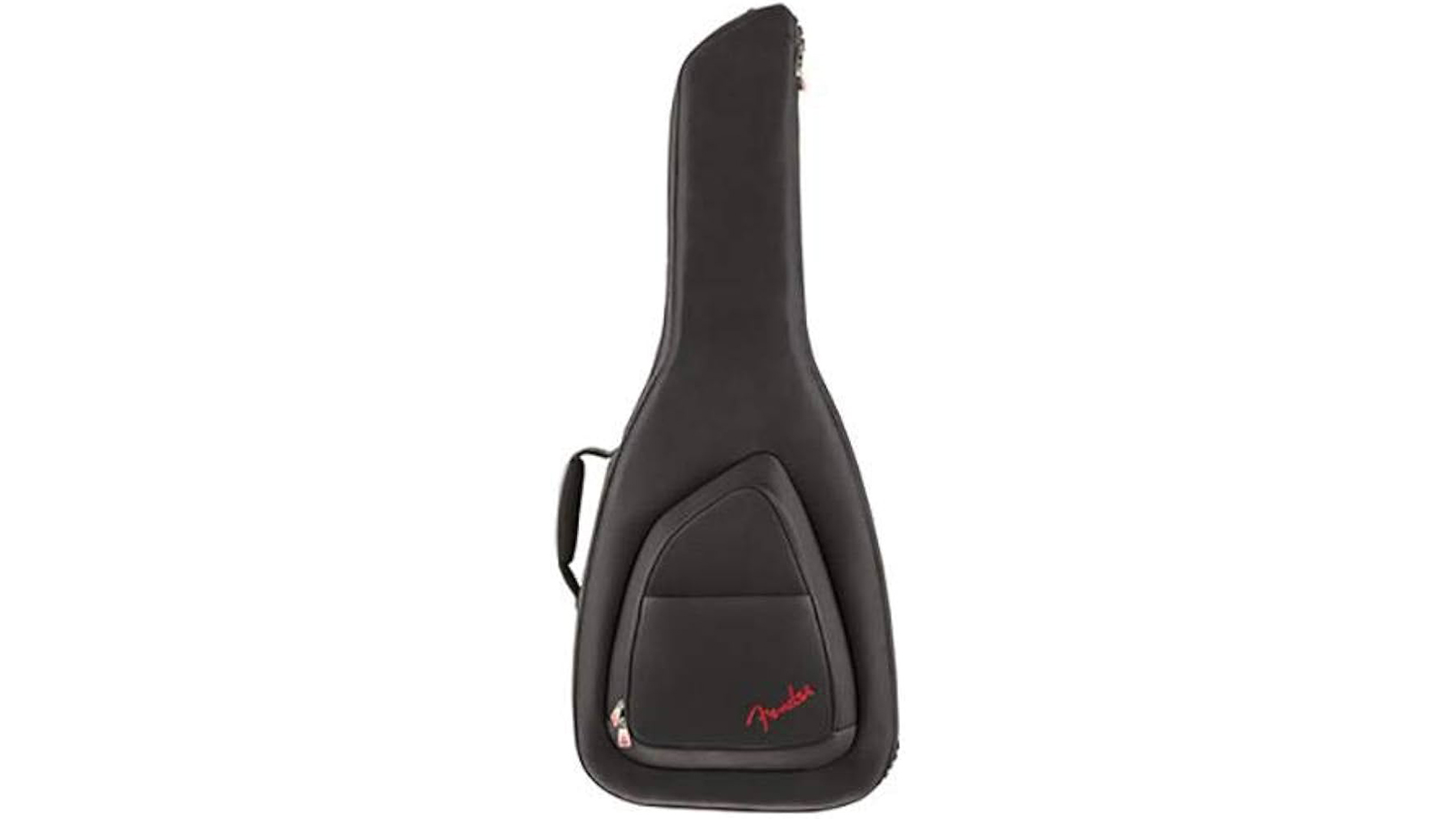
Specifications
Reasons to buy
Reasons to avoid
Fender’s top-of-the-line guitar case is a hybrid, semi-rigid gig bag/hardshell design. It packs 25mm of padding, which makes it bulkier than your average gig bag, but also ensures the case offers minimum flex and delivers serious protection.
The F1225’s asymmetrical shape is designed to fit all of Fender’s most common body types, including the Stratocaster, Telecaster, Jazzmaster and Starcaster – which is great news for offset fans. With external bumpers for the headstock and base of the instrument, plus an end pin protector, it’s a well thought-out design, while the internal microfiber lining is plush and easy on your guitar’s finish.
Yet while its shoulder straps are extremely comfortable, they are positioned fairly low on the case, which means your guitar’s neck rises higher, so you may find yourself banging into more doorways. The case’s front compartment isn’t the largest on the market, but it’s got a number of neat pouches to store picks, strings, pens and a key fob.
This is a reasonably priced case for anyone who wants to treat their guitar to a high level of portable protection, but can’t stretch to a Mono or Reunion Blues design.
Read our full Fender F1225 Electric Guitar Gig Bag review
Best for dark stages
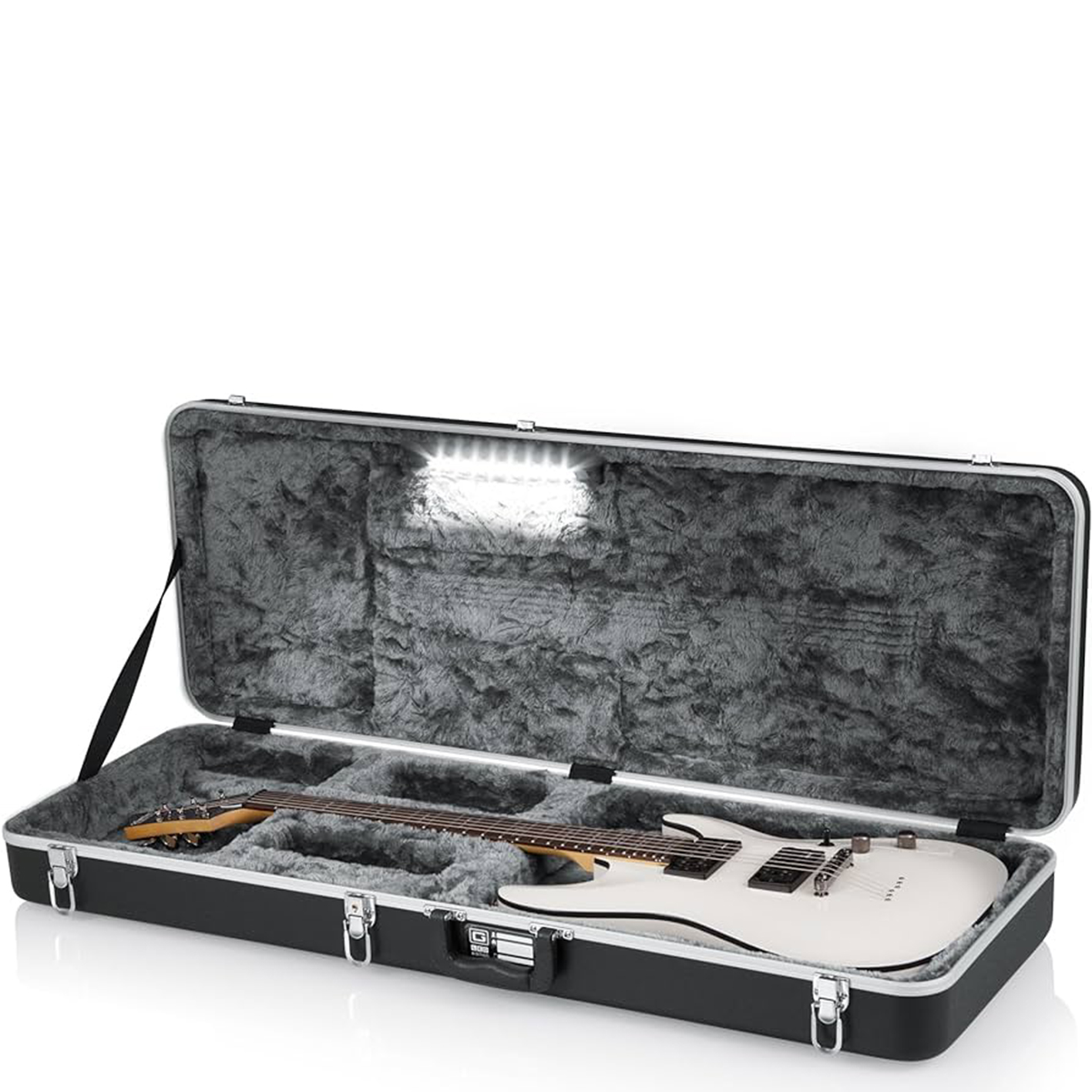
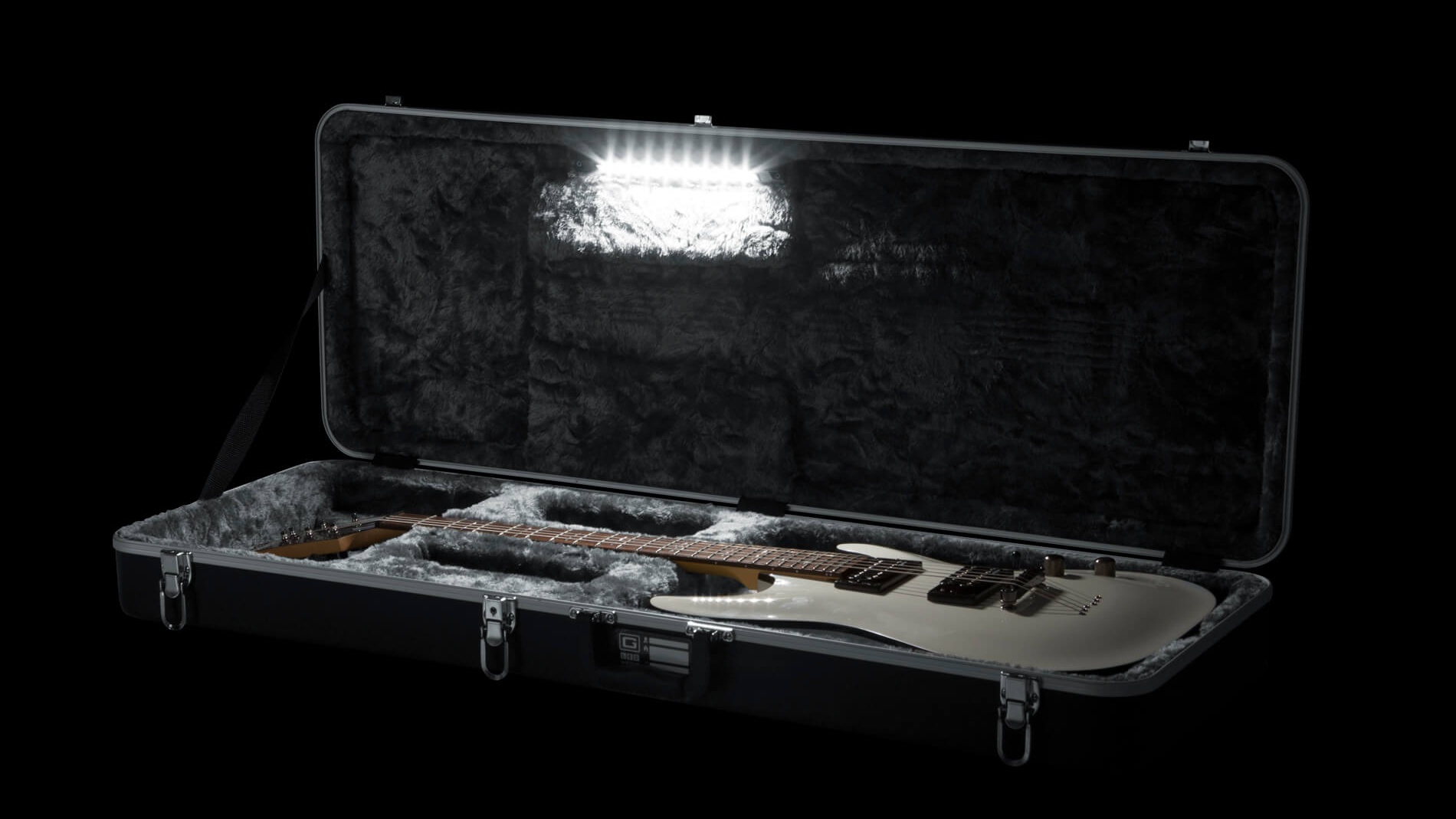
6. Gator GC Electric Guitar Case – LED Edition
Our expert review:
Specifications
Reasons to buy
Reasons to avoid
Gator makes some of the best third-party cases around, so there’s no doubting this one’s pedigree. It has all the usual features: a tough, impact-resistant ABS shell, a heavy-duty aluminum bumper for added strength, a plush interior that molds to your guitar shape, a padded neck cradle and useful storage compartments.
What really sets it apart is the integrated LED panel that quite literally shines a spotlight on your beloved guitar and any stowed accessories. For bedroom players, this could be dismissed as a vanity light, but for touring musicians used to playing on dimly lit stages it’s a godsend. About to go on and still can’t find the right pick in the gloom? Or your guitar for that matter? No worries – flick the switch and your entire case will be bathed in light.
Best for pointy guitars
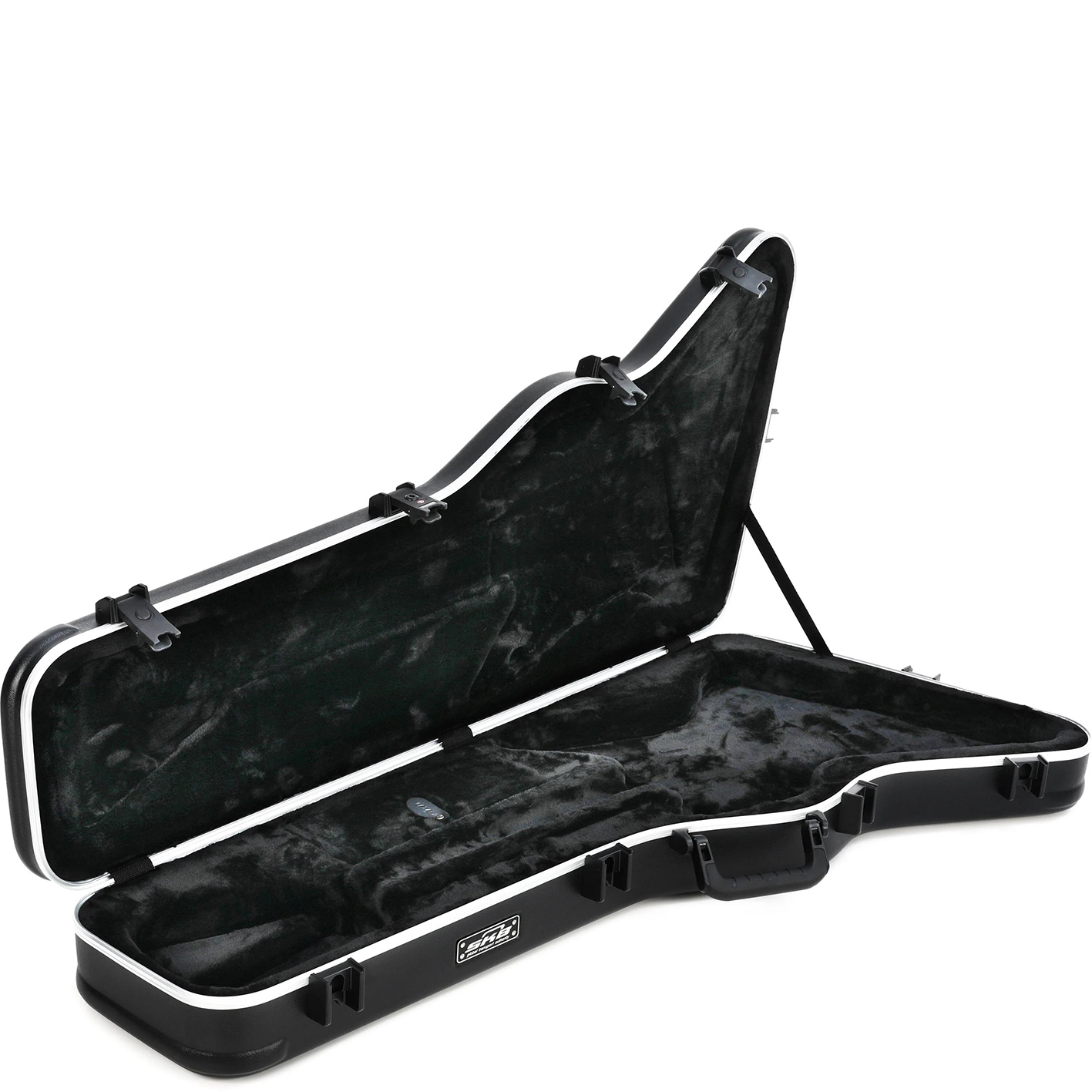
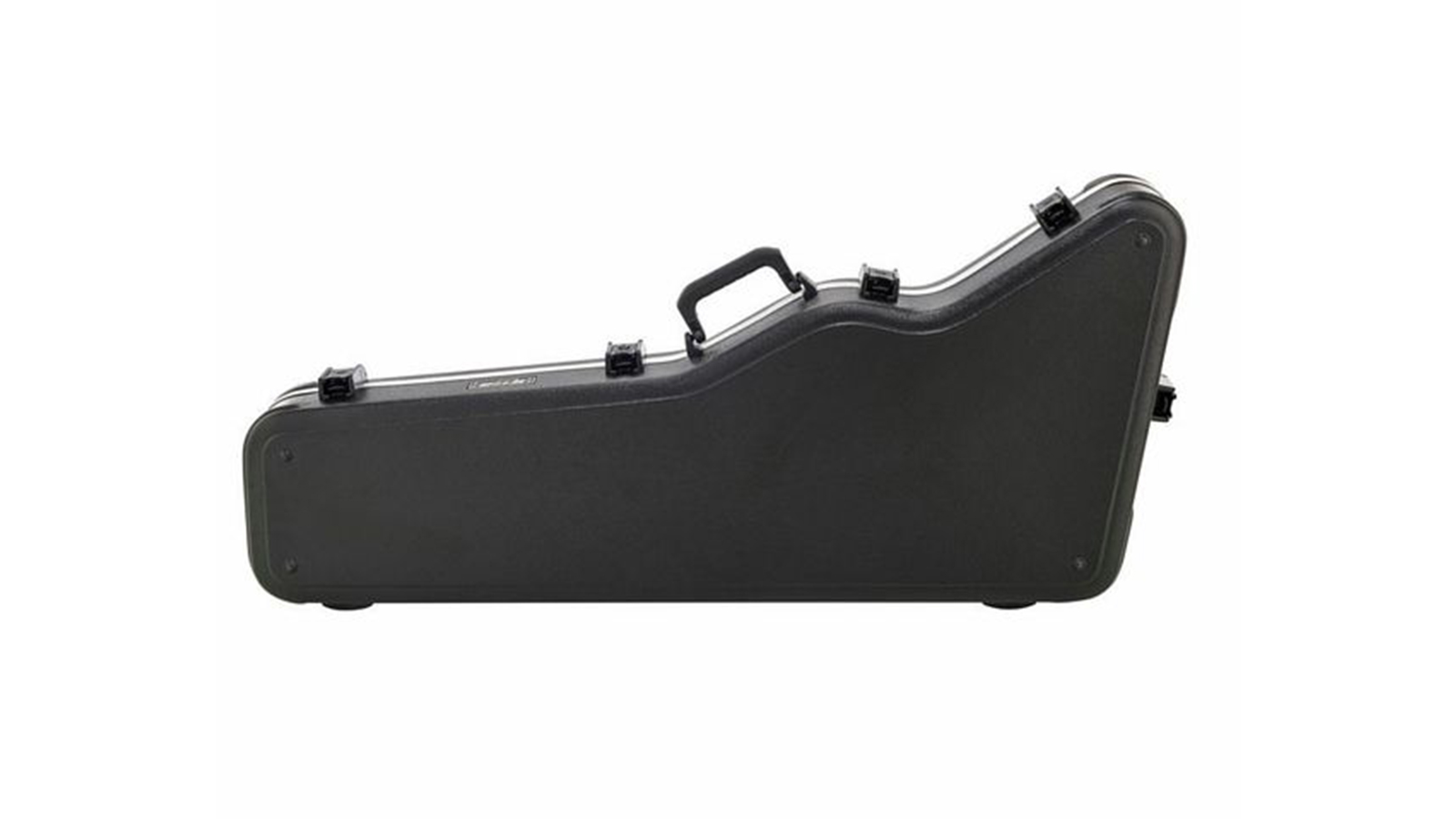
7. SKB 1SKB-63 Explorer/Firebird hard shell guitar case
Our expert review:
Specifications
Reasons to buy
Reasons to avoid
So, you’ve opted for an angular axe, and now it’s time to leave the house. SKB’s 63 case offers protection for your Explorer, Firebird, Warrior, Kelly or similarly sharp guitar, which is important given that these designs not only feature plenty of precarious peninsular’s, but they often protrude further than your average Strat or Tele. They tend to be longer too, so cramming it into a standard gig bag won’t work.
SKB’s 63 features a near-indestructible ABS shell, lined with plush foam and equipped with an accessory compartment. The locks are TSA-accepted, and the catches feature a fibreglass-reinforced, trigger-released latching system to ensure they’ll last for years. It’s not cheap, but if you want extreme protection for your extreme pride-and-joy, this is an extremely solid choice.
Best for Les Pauls
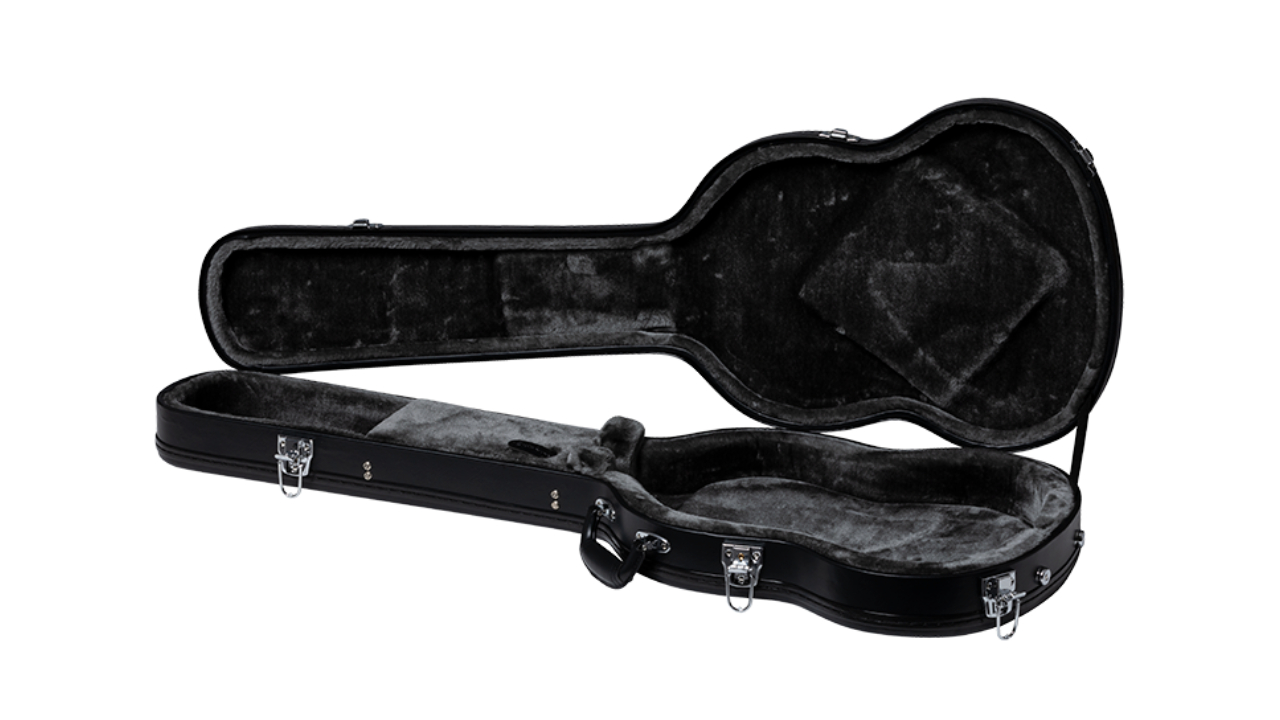
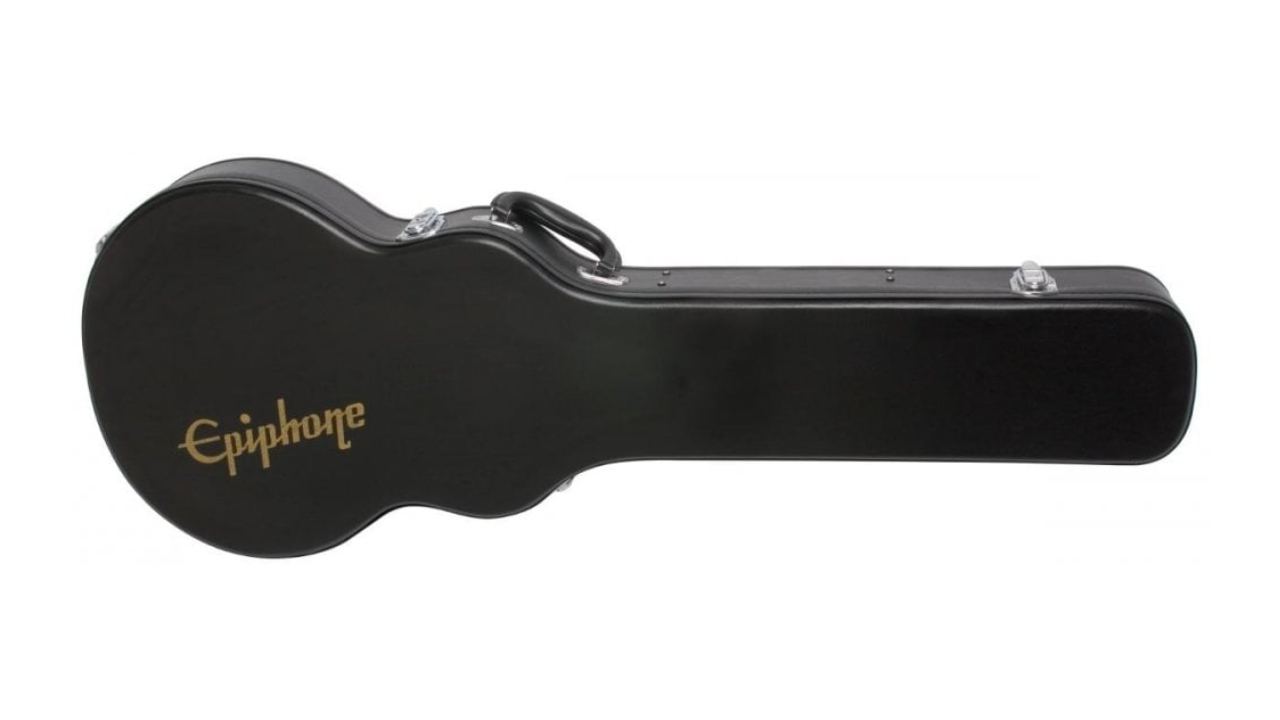
8. Epiphone Case for Les Paul
Our expert review:
Specifications
Reasons to buy
Reasons to avoid
It goes without saying that we love Epiphones here at Guitar World. The quality is amazing, they play great, they can sound out of this world and the prices are affordable – what’s not to like?
Well, some Epiphones don’t come bundled with a hard case (which is no great surprise considering the price points). It’s not a biggie, though – here we’ve highlighted Epiphone’s Les Paul case, but the manufacturer makes similar cases for the rest of its model range. We believe they should be right up there towards the top of your list when looking for a case to protect your new Epi. Tough, well-made and kinda classy in black with that bold gold logo, they’re a great addition to your set-up.
Best multi-guitar
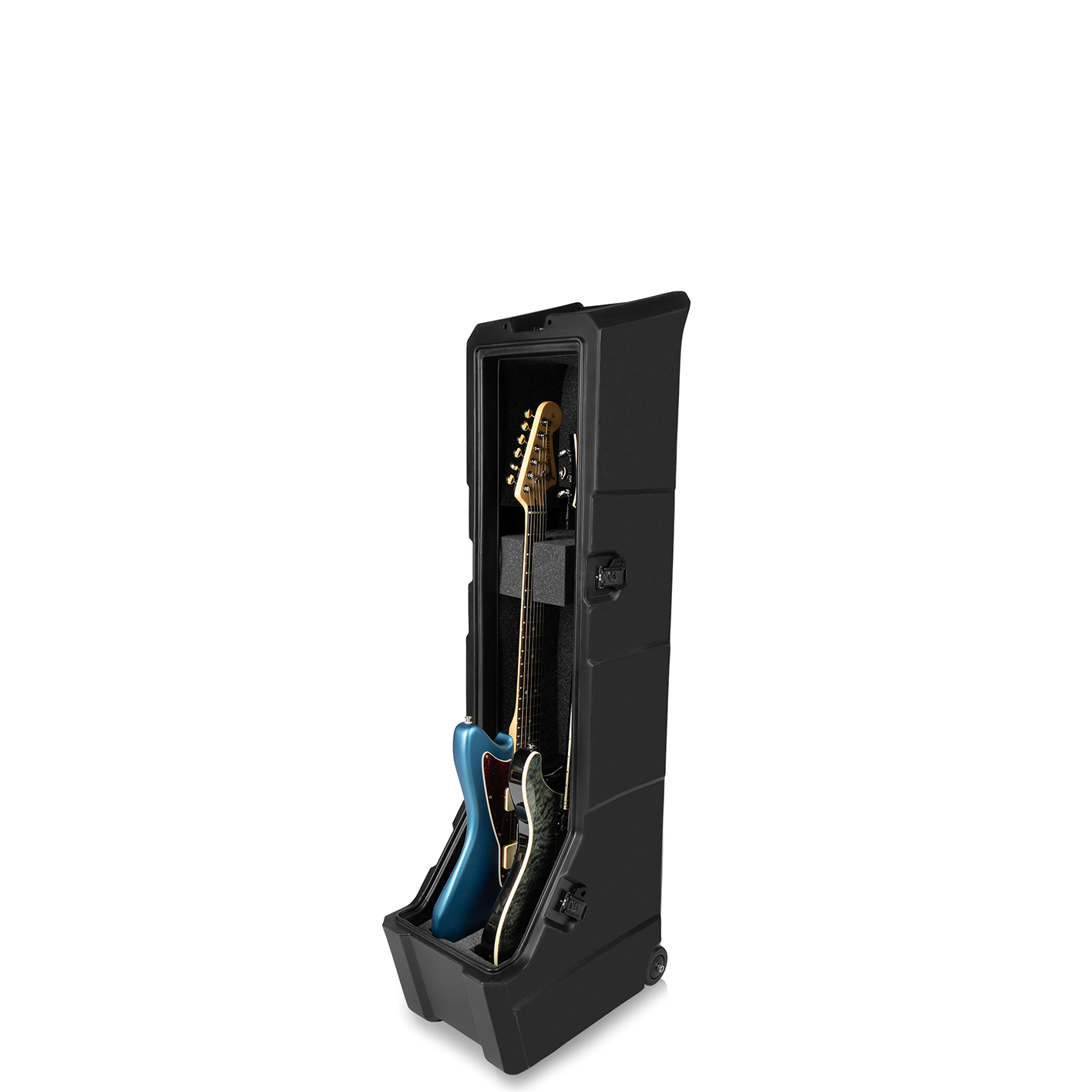
9. Gator Minivault 2
Our expert review:
Specifications
Reasons to buy
Reasons to avoid
Plenty of guitarists have multiple guitars they need to take to shows, either for different tunings or simply as backups. Carrying one hard case around is a pain. Carrying two is a nightmare. The Gator GTR-Minivault-E2 is a case-cum-rack that safely houses two of your guitars in transit.
Internally the case is covered in foam, which should protect your instruments in transit from external knocks and vibrations, and the magnetized front cover comes off so you can easily access both when you reach your destination. This combined with the super-hard roto-molded polyethylene plastic outer shell means this is a superb road-ready hard case.
Best for flying V
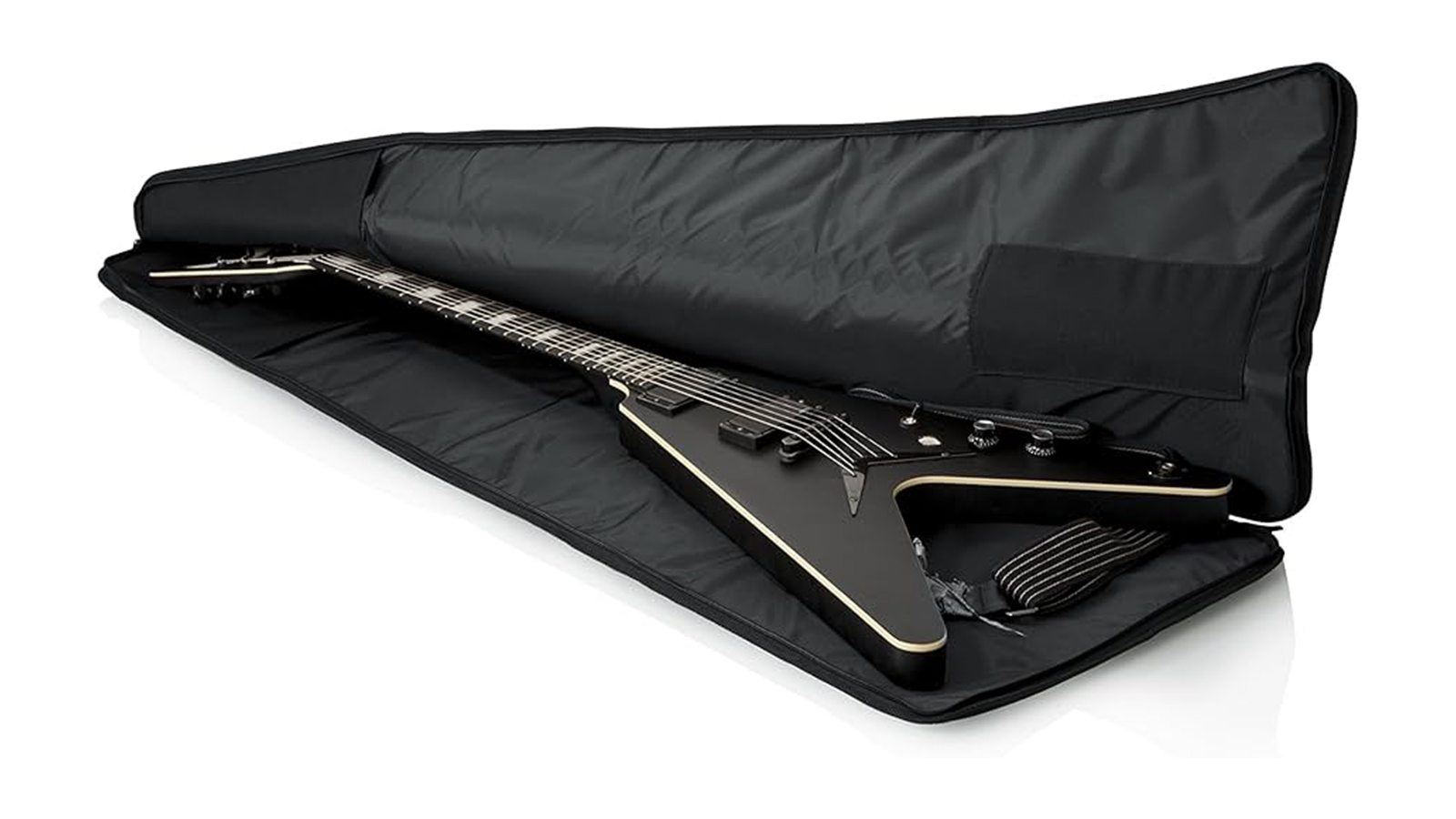
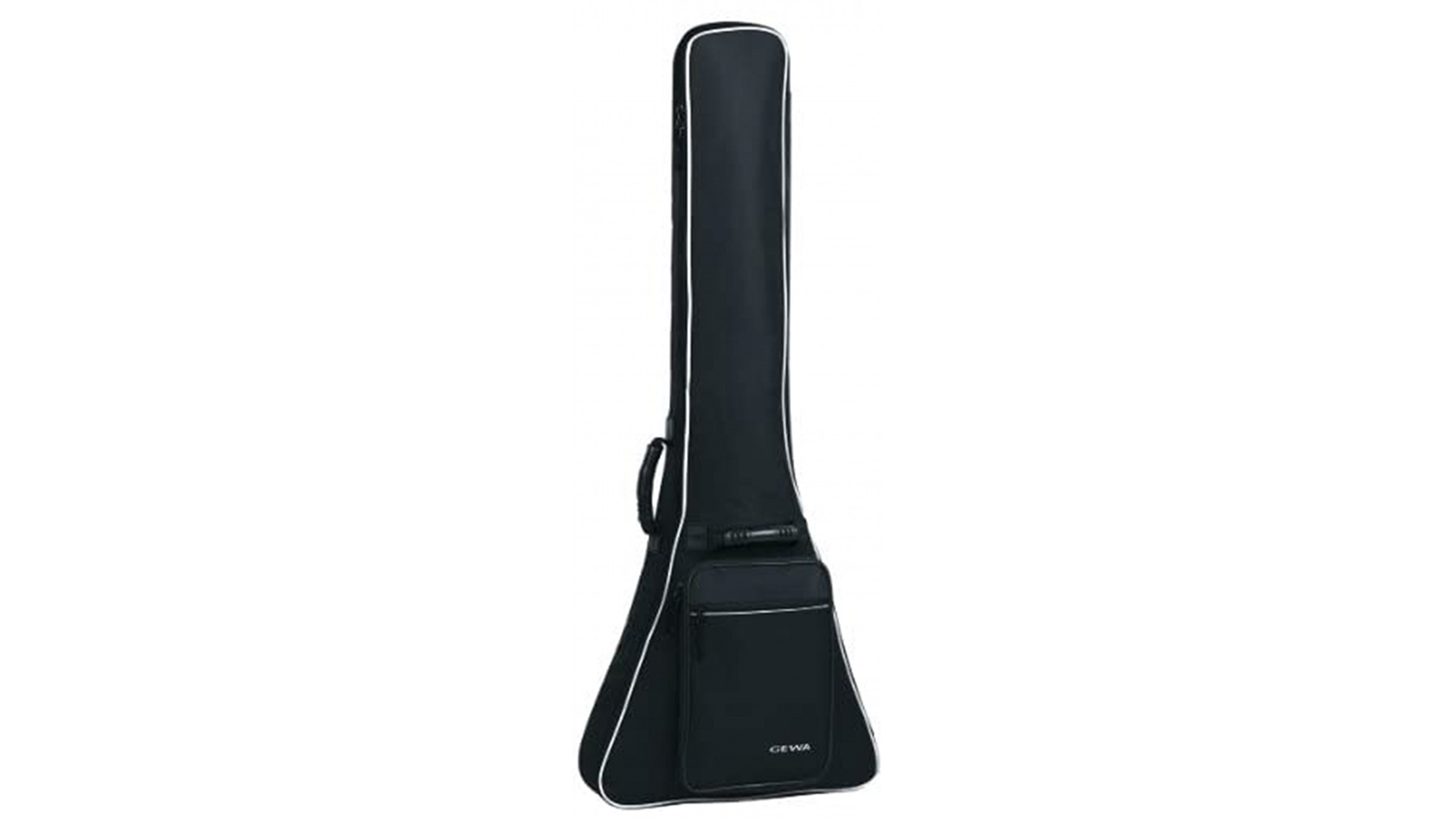
10. GEWA Economy Flying V Gig Bag
Our expert review:
Specifications
Reasons to buy
Reasons to avoid
Just as an X-shaped guitar will require more than the spare gig bag you’ve got knocking about, so will a V-shaped strummer. GEWA’s Economy range of cases aims to span the durability and protection of a hardcase, with the portability and comfort of a padded gig bag.
Here, the 212480 Flying V case (they make plenty of others too) comes with 12mm of high-density foam padding throughout, with additional protection added for the headstock and bridge areas, plus a thick-padded carrying handle and shoulder straps. There’s limited pocket space, but the front offers enough for an A4 book or two, perfect if you’re transporting your guitar for light journeys.
FAQs

How to choose the best guitar case for you
You can trust Guitar World
It's not particularly outlandish to say that all cases and gig bags are not made equal. While even the cheapest case or gig bag will offer a modicum of protection, the exact amount you will get can vary wildly between different cases.
It goes without saying that guitars – which, let’s be honest, aren’t known to be particularly sturdy at the best of times – need some protection, but the exact amount they need will depend on your circumstances. For example, are you planning on using your instrument as a snowboard? If so a soft case probably won’t cut it.
Obviously that’s a rather silly example, but it is worth bearing in mind that a hard case may be absolutely necessary in some instances, and in others it could be overkill.
It really depends on value. By value we mean the value of your instrument to you – which could be financial, sentimental, or a mix of the two. A starter instrument that you’ve just purchased, may only need a relatively small amount of protection to transport from home, to the car, and into your guitar lesson and back, so an entry-level padded gig bag will absolutely do the job. Whereas a vintage Les Paul worth $5,000, or a family heirloom, probably shouldn’t leave the house in anything other than the finest, most robust hard case.
How much protection does my guitar really need?
Most players will want to take their instruments out of the house from time to time, but not every player will be taking their guitar around the country on tour. If you’re the latter kind of player, your guitar could be cruising for a bruising, so a hard case securely wrapped around its exterior is going to be a necessity – even the most durable of gig bags would struggle in this situation.
If you’re a player who typically has their instrument proudly displayed on a wall hanger at home, with its typical journey consisting of leaving its hanger before softly landing on your lap, a hard case feels a little over the top. However… even the most reserved player will likely need to take their instrument out to the shop once in a while, at which point you really don’t want to be throwing it willy-nilly into the back of your car. Even a cheap gig bag will provide protection against surface scratches and small knocks on your travels.
Take into account how often you currently move your instrument (or intend to) and that will inform what level of protection your instrument needs. It may be that different occasions call for different protection.
What's the difference between a hard case and a gig bag?
Hard cases have one major benefit, and it very much says it on the tin. Hard cases are hard! Built from traditional solid materials and shaped internally so your instrument can’t move an inch, they are undoubtedly a better form of protection than a soft gig bag.
But that doesn’t mean that the hard case wins every battle Where gig bags really shine, is when your instrument’s mode of transport is by foot. If you’ve ever tried walking any kind of distance with a hard case, you’ll know it’s heavy, awkward, and not a lot of fun. On the flip side, a gig bag is much lighter and many have straps so you can wear it on your back.
This makes it super easy to take it from place to place, and would be ideal for students who take their instruments to school. Equally, if you use public transportation to get to your gigs; with a gig bag on your back, you’ve got two hands free for a pedalboard and even a small combo, so you can take your entire rig with you – try doing that with a hard case!
Bear in mind, if you do take your instrument out on your back, it could still be subject to the outside world, which can be a cruel mistress. Your gig bag will look after your instrument from the average knock, but if a stranger happens to push you in passing, or worse, bundle you over, your instrument might not make it through your travels unscathed.
Regardless of which case you buy, look for essentials like pockets and locking zips/latches which will add another layer of protection to your instrument and accessories. Guitars in any case are a prime target for thieves, and a case can at the very least make it a little more challenging for anybody to access your guitar.
What else do I need to know about hard cases?
Hard cases are sensational when it comes to protecting your guitars, with their resilient outer, opening to a plush, lined interior, in which your shred machine can slumber. There are typically two types of hard cases, one which mirrors the shape of your instrument – albeit more bulbous – and the other being a large rectangle. Neither is better than the other, though the shaped cases will usually be perfectly sized for your instrument, ensuring there is absolutely no movement internally from your instrument. Some of the rectangular cases will also have a cut out inside for your guitar to fit perfectly, however this isn’t always the case.
Some generic hard cases – typically at the lower end of the market – will be one-size-fits-all, which is great if you switch guitars regularly and only want to purchase one case, but may mean some instruments could slip. For example, a guitar with a shorter scale length or body may have movement up and down inside the case, which could result in damage to the head or base of the instrument.
Where rectangular cases can have an advantage, is they have more space for internal pockets, for the likes of picks, sheet music, capos, and even folding stands. If you like to have all of your guitar peripherals in one place, this is super handy.
Regardless of shape, the hard case has a mortal enemy… the baggage handler. These individuals are architects of guitar destruction, always plotting new evil with which to torture instruments. The greatest of all hard cases have succumbed to these menaces, being left crumpled, broken, and unsalvageable. Fortunately, the hard case has an even tougher big brother – the flight case.
Do I need to buy a flight case?
Flight cases are typically made from aluminum, with reinforced corners that are designed to deal with the most violent assault from the outside world, while your precious cargo remains safe inside, wedged between custom-carved foam. When it comes to guitar protection, this is the pinnacle.
So why not use a flight case all the time? We wouldn’t recommend it. These things are stupidly heavy and even more awkward than a hard case, plus they can cost a fortune.
They are really only utilized by touring bands who are taking multiple guitars across the world. For the majority of non-global-touring-artists, a hard case is the perfect level of protection.
What material should my hard case be made from?
Two methods of hard case manufacture dominate, utilizing different materials. Old-school models are made from rugged plywood panels covered in Tolex or fabric, while more modern interpretations are molded in tough ABS plastic. Both will do a great job of protecting your guitar, but the plastic versions have the edge if you travel a lot.
ABS plastic has a high-tensile strength and is very resistant to both physical impacts and chemical corrosion. If, however, you’re trying to cut back on your plastic purchases then a plywood version may suit you better. Just bear in mind that we have no way of knowing just how good or bad these really are for the environment.
Look out for strong hinges and latches or clasps that have been attached squarely and securely. Plywood-based cases tend to have traditionally styled nickel or chrome-plated steel or brass hardware, with metal stud feet. Steel hardware, even when plated, can rust surprisingly quickly in damp conditions, so keep an eye out for the early signs. A neat trick is to combat corrosion with a coat of clear nail varnish (it’s not often we use the words combat and nail varnish in the same sentence here at Guitar World).
Plastic cases will often have plastic hinges and clasps, reinforced where needed with metal pins for strength. Because they’re more likely to be shoved in the hold of a plane, they may boast other niceties such as metal bumpers that run all the way around the lid lips, chunky feet for stability and TSA locks.
If you don’t do much traveling with your guitar, then choosing between the two styles will be down to little more than aesthetics. There's something special about pulling a Tele from a tweed case; an emotional response you just don’t get with plastic.
How much should I consider weather and humidity?
All hard cases should be more weatherproof than their gig bag cousins, so a touch of rain or snow shouldn’t trouble your guitar too much. However, standard models are far from waterproof, so if you live in a location where torrential downpours are the norm, or you busk from a canoe, then buy yourself a waterproof case – which could basically double up as a canoe too (Guitar World does not recommend trying this). It’ll feature proper watertight seals and a relief valve to purge any unwanted build-up in pressure as climatic conditions change.
If humidity, or lack of it, is an issue in your home, then you can turn your case into an acoustic guitar humidor by adding a humidifier system from the likes of Planet Waves or D’Addario. Whether you need this sort of solution or not will largely depend on whether you live in a temperate region. But regardless of where you are, never leave your guitar in its case for extended periods of time. Open it up from time to time, and give both case and guitar a good airing. You could even play it.
What is case bite?
Finally, there’s a terrible condition associated with cases that has been known to make grown men cry. Case bite – the ultimate own goal.
Case bite usually occurs in that split second when your gorgeous guitar is not fully in the case and not fully out. It’s the midway, no-man’s land that strikes fear into the hearts of all guitarists who love their instruments a little more than is strictly healthy.
It goes something like this. As you lift the guitar up and out, over the bottom lip of the case, a freak vibration (most likely your forearm) causes the lid to waver, lose its already tentative grip on balance, and come crashing down on your guitar’s pristine top. At least one of the latches will punch a snakebite-like indentation in your guitar’s soft nitrocellulose finish. It’s not going to polish out.
So, before removing or replacing your guitar, always steady the lid, or you risk damaging your beloved instrument with the very thing you bought to protect it. Case closed.
How we choose the best guitar cases
Here at Guitar World, we are experts in our field, with many years of playing and product testing between us. We live and breathe everything guitar related, and we draw on this knowledge and experience of using products in live, recording and rehearsal scenarios when selecting the products for our guides.
When choosing what we believe to be the best guitar cases and gig bags available right now, we combine our hands-on experience, user reviews and testimonies and engage in lengthy discussions with our editorial colleagues to reach a consensus about the top products in any given category.
First and foremost, we are guitarists, and we want other players to find the right product for them. So we take into careful consideration everything from budget to feature set, ease of use and durability to come up with a list of what we can safely say are the best guitar cases and gig bags on the market right now.
Read more about our rating system, how we choose the gear we feature, and exactly how we test each product.
Read more:
- Best guitar strap locks: The finest fasteners from Schaller, Jim Dunlop, more
- Pick up the best guitar cables for electric, acoustic and bass guitar
- Secure your guitar in style with the best guitar straps
- The best guitar picks to upgrade your playing
- Organize your gear with best guitar stands and guitar hangers
Get The Pick Newsletter
All the latest guitar news, interviews, lessons, reviews, deals and more, direct to your inbox!
When Simon's childhood classical guitar teacher boasted he 'enjoyed a challenge', the poor man had no idea how much he'd underestimated the scale of the task ahead. Despite Simon's lack of talent, the experience did spark a lifelong passion for music. His classical guitar was discarded for an electric, then a room full of electrics before Simon discovered the joys of keys. Against all odds, Simon somehow managed to blag a career as a fashion journalist, but he's now more suitably employed writing for Guitar World and MusicRadar. When not writing or playing, he can be found terrifying himself on his mountain bike.
“Wins out on battery life, stealthy aesthetics and its well-judged Cable Tone feature”: Blackstar Airwire i58 review
“A distinctive brightness that no other strings have been able to capture”: How Rotosound revolutionized the bass world with its Swing Bass 66 strings – and shaped the sound of rock music in the process

